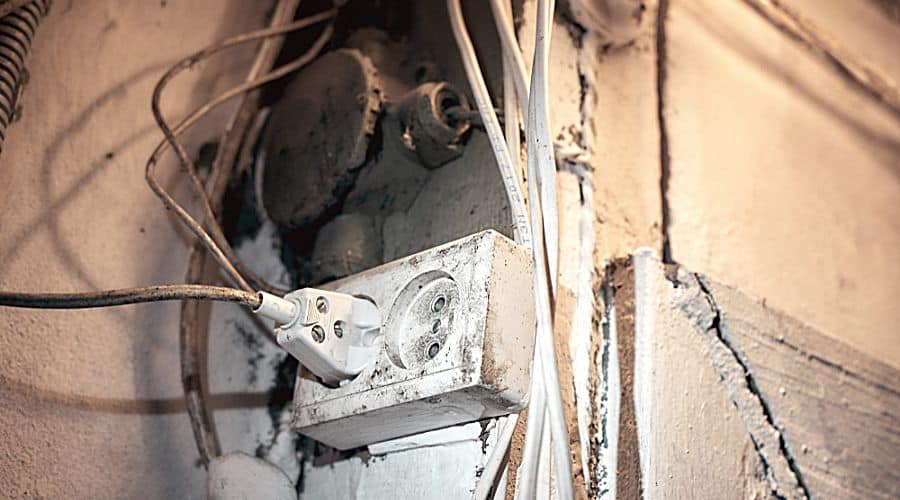Residential electrical systems are intricate and potentially hazardous if not properly maintained or repaired. Recognizing the signs that you need to call an experienced residential electrician can save you time, money, and potentially prevent dangerous electrical mishaps. Below are eight crucial indicators that it’s time to bring in a professional.
1. Frequent Circuit Breaker Trips
Circuit breakers are designed to shut off power to prevent electrical overloads and fires. However, if your circuit breaker is frequently tripping, it could be a sign of a deeper issue such as overloaded circuits, short circuits, or ground faults. A qualified electrician can inspect your wiring and address these problems to ensure your home’s electrical system is safe and efficient.
2. Flickering or Dimming Lights
Flickering or dimming lights can be caused by a variety of issues, including loose wiring, a poor connection, or overloading on a single circuit. While it might seem like a minor inconvenience, it can indicate a serious problem that requires professional intervention. An experienced electrician can diagnose the cause and implement the necessary repairs.
3. Outlets That Are Warm to the Touch

Electrical outlets should never be warm or hot to the touch. Warm outlets can be a sign of faulty wiring, an overloaded circuit, or a problem with the outlet itself. These issues need immediate attention from an electrician to prevent potential electrical fires and ensure your home’s safety.
4. Burning Smells or Sparks
If you notice a burning smell or see sparks coming from an outlet or electrical appliance, it is a clear sign of serious electrical issues. This could be due to faulty wiring, an overloaded circuit, or damaged components. Immediate action by a qualified electrician is required to diagnose the problem and carry out necessary repairs to prevent fires and additional damage.
5. Frequently Blown Fuses
While older homes may still use fuse boxes instead of circuit breakers, frequently blown fuses indicate a problem with your electrical system. It could be an overloaded circuit, short circuits, or outdated wiring. An electrician can replace blown fuses and identify the root cause to prevent future occurrences and potential hazards.
6. Buzzing Noises from Electrical Fixtures
Hearing a buzzing noise from your electrical fixtures or outlets is another sign that something isn’t right. This noise could stem from loose connections, faulty wiring, or issues with the fixture itself. An electrician can safely diagnose and repair these problems to ensure your home’s electrical system functions correctly and safely.
7. Outdated or Damaged Wiring


Older homes often have outdated or damaged wiring which may not meet current safety standards. If your home’s wiring is more than a few decades old, it might have issues such as fraying, brittleness, or being improperly insulated. An electrician can inspect your wiring and recommend updates or replacements to bring your home up to code.
8. Electrical Shocks When Plugging in Devices
Experiencing a shock when plugging in or touching an electrical appliance can be alarming and indicates a potential hazard. This may be due to faulty wiring, a damaged outlet, or issues with the appliance itself. Contacting an electrician is crucial to find and fix the source of the problem to ensure your safety.
Conclusion
Identifying these signs early and consulting with a qualified electrician can help you maintain a safe and efficient electrical system in your home. Electrical problems can escalate quickly and lead to significant damage or even pose safety hazards, so never hesitate to seek professional help at the first indication of an issue.
This table below can help you keep track of common issues and their potential causes:
| Sign | Potential Cause | Recommended Action |
|---|---|---|
| Frequent Circuit Breaker Trips | Overloaded circuits, short circuits, ground faults | Inspect wiring, address issues |
| Flickering/Dimming Lights | Loose wiring, poor connection, overloading | Diagnose and repair |
| Warm Outlets | Faulty wiring, overloaded circuits, outlet issues | Immediate professional intervention |
| Burning Smells/Sparks | Faulty wiring, overloaded circuit | Urgent professional intervention |
| Frequently Blown Fuses | Overloaded circuit, short circuits, outdated wiring | Replace fuses, identify root cause |
| Buzzing Noises | Loose connections, faulty wiring, fixture issues | Diagnose and repair |
| Outdated/Damaged Wiring | Frayed, brittle wiring, improper insulation | Update or replace wiring |
| Electrical Shocks | Faulty wiring, damaged outlet, appliance issues | Consult an electrician |






